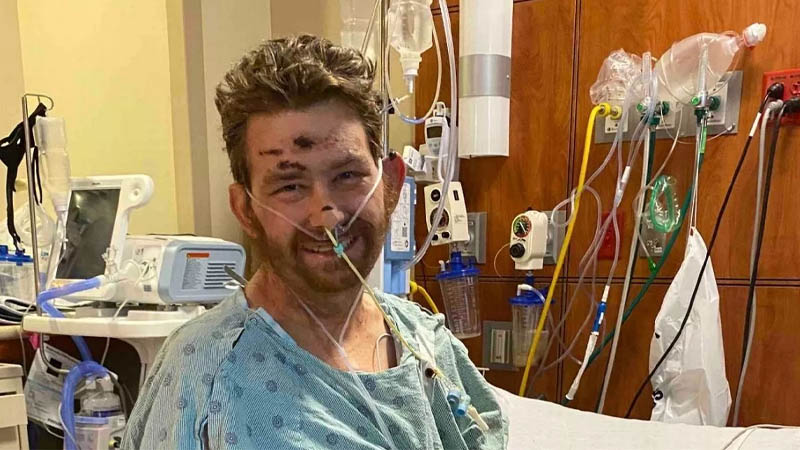In an extraordinary medical case, Steven Spinale faced near-fatal consequences after attempting to remove an ingrown hair from his groin area, leading to a severe infection and blood poisoning. Diagnosed with sepsis and initially given a grim prognosis with only a four percent chance of survival, Spinale’s journey through a month-long coma, open heart surgery, and multiple other treatments has been nothing short of miraculous, reported by “BNN“.
The ordeal began when Spinale tried to extract an ingrown hair, which escalated into a life-threatening situation as the infection spread, causing his immune system to attack his own body. Despite being dismissed by several hospitals and enduring worsening symptoms, including internal bleeding and difficulty breathing, his condition was not properly addressed until it became critical.
Michelle, Steven’s sister, shared the harrowing experience on social media, revealing how her brother was repeatedly turned away by medical professionals until he was finally hospitalized in a critical state. By then, Steven’s body was in septic shock, his organs were failing, and he was battling pneumonia, influenza A, and acute respiratory distress syndrome (ARDS), leading to a collapsed lung function.
The infection had also severely damaged Steven’s heart, and despite the high risks, he underwent open heart surgery among other procedures to manage the complications. For weeks, his survival hung in the balance as he was placed in a medically induced coma, with doctors and his family fearing the worst.
Against all odds, Steven’s condition began to improve. After a month in a coma and enduring a gauntlet of medical interventions, he awoke with no brain damage, to the relief and astonishment of his loved ones and medical team. His recovery process included rigorous rehabilitation, learning to sit up, and gradually regaining his mobility.
Michelle’s updates captured the emotional rollercoaster the family experienced, from the despair of being told Steven was brain dead and considering end-of-life decisions, to the joy of seeing him regain his strength and vitality. His progress from being wheelchair-bound to taking steps on his own serves as a testament to his resilience and the critical importance of persistence in the face of medical adversity.
Steven’s story is not just a personal triumph but a reminder of the unpredictable nature of health crises and the paramount importance of timely and accurate medical intervention. It underscores the extraordinary capabilities of the human body to recover and the invaluable support of family and healthcare professionals in overcoming the most daunting challenges.


